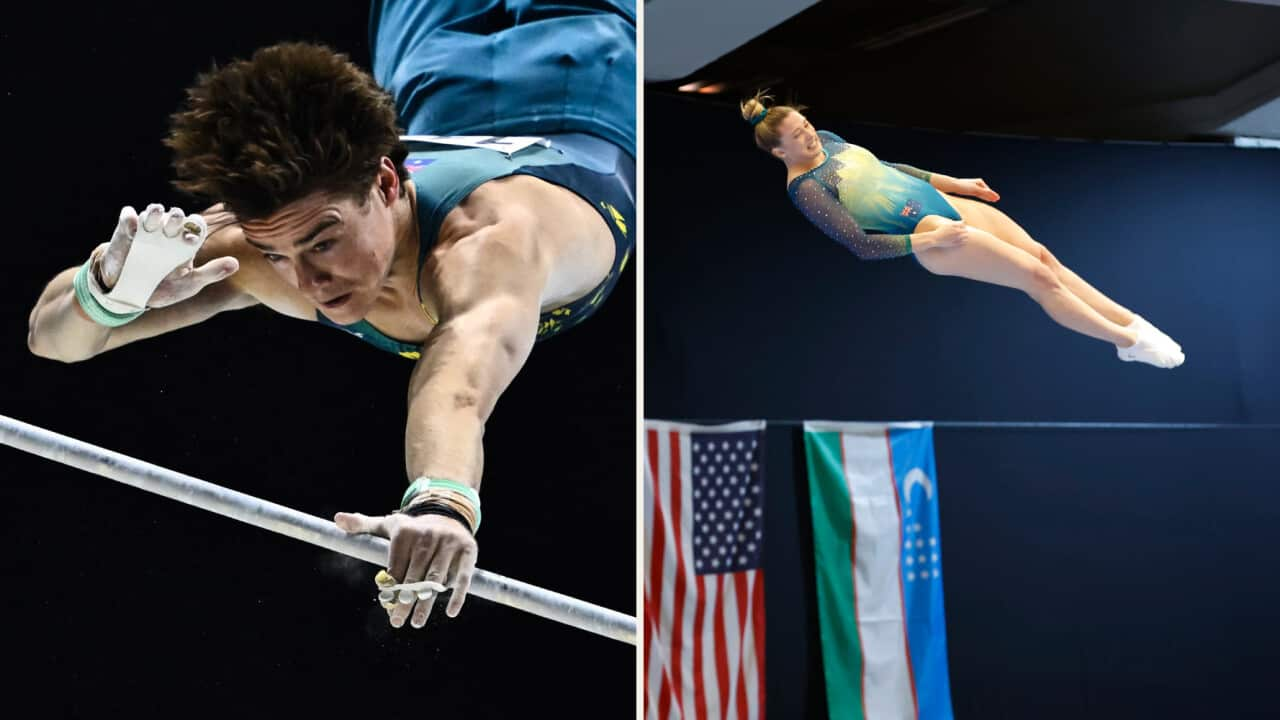Job done, group topped
While there is plenty for coach Graham Arnold to think about heading into the knockout stage, the fact is that Australia topped a tough-looking group.
Were they the best team over the three games? It’s hard to say.
The Olyroos were unsure of progression right until the final whistle of game three and while the performances were patchy, the same could be said of most teams in the tournament and certainly all three in Group A.
After failing to qualify for the past two Olympics, Australia are in a good position.
You don’t have to be at your best from the opening game (insert Italy-winning-1982-World-Cup cliche here) but now Australia are a game away from the last four and within touching distance of Tokyo 2020, and with most rivals having better and longer preparations, that is something to be proud of.
Players need playing time at home
One of the most satisfying things about watching a tournament, especially the group stage, is seeing players make a name for themselves internationally and that is exactly what Reno Piscopo has done.
The Wellington Phoenix star came into the tournament on the back of solid domestic form and what he was doing down under, he is now doing in Thailand.
His free-kick in the opening game against Iraq was a thing of beauty but just the icing on the cake of a lively attacking performance that caused Iraq a lot of problems.
Piscopo has shown, along with the likes of Thomas Deng and Denis Genreau, that youngsters who get regular minutes at home can stand out away.
Fresh legs may make the difference
When conditions are hot and humid and pitches heavy, then having one more day’s rest than Syria will make a difference - as will the fact that Australia rotated much of their first team.
It was a gamble that just about worked. For the second game against Thailand, Arnold made six changes to the side that had drawn against Iraq.
In the first half, the Olyroos were chasing shadows against the slick hosts who looked to be in full control, yet with about 30 minutes remaining, the young War Elephants started to run out of steam and Australia came back and won the game to put one foot in the knockout stage.
There were changes again for the final game against Bahrain. Australian legs should be a little fresher than their Syrian counterparts on Sunday.
Australia need to step it up against Syria
Had Bahrain had a more composed striker then things could have been very different and Arnold knows that Australia have to step it up a level in the quarter-final.
At the back, the team was often too sloppy in possession and, against better and more clinical teams, would have been punished.
Those include Korea Republic, a team that is looking strong with three wins from three in a tough group containing a China, Iran and Uzbekistan team that may not be as strong as the 2018-winning side but is dangerous nonetheless.
Australia are fortunate that Saudi Arabia defeated Syria to win Group B as a clash against the impressive Green Falcons would have been a concern.
Syria will sit back and look to hit on the counter and it could be a frustrating evening.
The players lack international experience but play almost as a club side, with impressive work-rate and team spirit and have an emerging star in Alaa Aldin Dali.
Led by the wily Ayman Hakeem, who took the senior side close to the 2018 FIFA World Cup only to lose a continental play-off against Australia, there is motivation for revenge, but most of all, a huge desire to represent their war-torn homeland at the Olympics.
Referees can spoil the best-laid plans
The standard of refereeing in Asia has never been something to shout about and this tournament is no different.
The addition of the VAR has not led to any noticeable upswing in the quality of decisions made.
It was summed up by an inexplicable red card given to Japan’s Ao Tanaka in the final group game against Qatar.
The challenge was not worthy of a yellow card and it was even debatable as to whether it was a foul at all.
Getting sent off for such an act would have been bad enough had there been no way for Muhammad Taqi to have a second look, but the Singaporean official ran over to the pitch-side monitor, had a look and still decided to remove the incredulous Kawasaki Frontale midfielder.
The use of the VAR has been poor from the get-go and every team will have to be careful as we move into sudden death territory.










